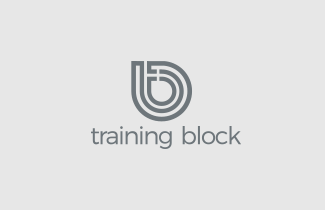





Hi! I'm Sarah Strong. I'm a Licensed Clinical Social Worker (LCSW), utltrarunner, running coach, and mom based in Arvada, Colorado. I provide virtual or trail-based therapy sessions and race performance support.
Our brains are just as important to our training as our bodies are, but most athletes don't take the time to invest in their mental training. As a licensed therapist I am trained to treat mental health issues such as anxiety, depression or eating disorders. I couple my professional backgorund with my personal running experience to support athletes in developing mental toughness and exploring and addressing fears around racing. Whether you are facing a rough patch mentally and emotionally or you are just looking to strengthen your grit, I can help!
I use a mindfulness based approach and help individuals cultivate self awareness, self belief and self acceptance by reconnecting to themselves and the natural world around them. Virtual sessions are open to anyone in the state of Colorado. In person trail based sessions happen anywhere along the 93 corridor from Golden to Boulder, as scheduled.

When it comes to both taking care of the brain and training it for enh...Read More
When it comes to both taking care of the brain and training it for enhanced performance, there’s no better tool than mindfulness. A runner who regularly practices mindfulness can experience less stress, stay engaged with their training plan, manage emotions during races, and more easily recover between workouts and events. Mindfulness supports runners in the short and long term and can have impacts far beyond the trail.
WHAT IS MINDFULNESS?
According to Jon Kabat-Zinn, mindfulness is “awareness that arises through paying attention, on purpose, in the present moment.” Mindfulness is an attitude, state of awareness, or way of being that comes from mindful practices. Mindfulness can be practiced anytime, anywhere, by intentionally shifting our focus to the present moment.
Mindfulness meditation is a formal mindfulness practice that helps develop a mindful attitude and cultivate present moment awareness. It is often what comes to mind when people think of mindfulness. Mindfulness meditation comes in many forms, not all which require stillness or sitting. The most compelling research on the physiological impacts and brain changes from mindfulness come from studies where participants engaged in formalized mindfulness meditation practice.
WHAT DOES MINDFULNESS HAVE TO DO WITH RUNNING?
Cultivating an attitude of mindfulness through intentional and consistent practice—especially the practice of mindfulness meditation—can have positive impacts on a runner both physiologically and psychologically.
Mindfulness teaches runners how to communicate with and regulate their bodies. With consistent practice, runners will learn to recognize when their sympathetic nervous system (fight/flight response) is in play and respond more efficiently when it is. Regular mindfulness practice produces structural changes in the brain that enhance communication between the prefrontal cortex (thinking part of the brain) and the amygdala (alarm center of the brain). These changes help individuals shift from reacting to potential threats to responding to potential threats--- a helpful skill to have in the middle of a race.
As runners increase their mind/body connection, they can more easily notice subtle changes in tension or stress that allows them to intervene earlier, decreasing the likelihood of burnout or injury. Mindfulness practitioners may be more capable of noticing the impacts different fuels have on their bodies or have more insight into how they are responding to the stressors of training. As runners use meditation, they can learn more about themselves and apply that knowledge to their training and racing.
Mindfulness decreases stress. By engaging with mindfulness we tell our body that we are safe which activates a relaxation response and results in a lower heart rate, relaxed muscles, and lower blood pressure. As a result, we feel an immediate decrease in stress. At the same time, awareness gained from mindfulness can provide a sense of clarity or perspective that increases a sense of control over a situation, alleviating stress.
Furthermore, and perhaps more excitingly, consistent mindfulness practice decreases the activity in the amygdala and shrinks the amygdala itself—both leading to an overall decrease in stress that lasts beyond the moment.
Life stress impacts our running. Putting big miles on a stressed system can lead to burnout or injury. By using mindfulness and decreasing overall stress, runners can safely stick with their training plan as prescribed or even increase their capacity for running-specific stress.
Mindfulness changes our brains. A study out of Harvard used brain imaging to demonstrate that mindfulness produces helpful structural changes in the brain after just 8 weeks of about 30 minutes/day of mindfulness meditation practice. Changes were identified in the prefrontal cortex and anterior cingulate cortex—both of which play major roles in executive functioning, impulse control and decision making. Mindfulness promotes neuroplasticity, which means by practicing mindfulness we can more easily learn new things and integrate new ways of thinking. We can change things we don’t like--maybe transform our inner critic to an inner coach or learn how to bomb downhill.
Mindfulness is a fantastic recovery tool. While the jury is still out on CBD bath bombs, there’s no question that mindfulness decreases cortisol, improve sleep, and reduce inflammation. Those physiological benefits paired with the mindful attitudes such as patience, non-judgement, and non-striving, support recovery between workouts after races, and during injury.
HOW CAN I GET STARTED?
Building capacity for mindfulness is just like building endurance for running—start small, stay consistent, and increase incrementally.
Start by integrating mindfulness into your running. You can use strategies like body scans or progressive muscle relaxation to take stock of how you are feeling and reduce tension before you even head out the door. During your run, set aside 3-5 minutes mid-run to focus on the pattern of your breathing or your feet hitting the ground. You don’t have to aim for an entire mindful run—just shift your attention for a few minutes.
Outside of running, look for regular pockets of time where you can implement a pause, a mindful return to the body. To have a “mindful moment”, simply intentionally shift your focus to the sensation of your breath or use your senses to notice the environment around you. When your mind shifts to thoughts or discomfort, come back to the breath/sense. Sitting for a few breath cycles before eating, pausing when transitioning from work to home or home to work, or being mindful for a few minutes before bed are all simple ways to add mindfulness into your day without impacting your busy schedule.
When you are ready to start with more formal mindful meditation, consider using guided meditations, visualizations, or movement meditations. These can feel more comfortable than sitting in silence trying to quiet your mind.
Start with an achievable goal of 3 days/week and 5-10 minutes/session for the first week. Once you’ve done that for a couple of weeks, increase EITHER the session time OR the frequency. If you miss a day, it’s OK! There’s always tomorrow. Try not to let a missed day become a missed week.
Mindfulness is an accessible tool—there’s no cost, no equipment, and it doesn’t require much in the way of technical skills. But for runners who are more comfortable with movement than stillness, it feels inaccessible. It doesn’t involve the dopamine hits we get from moving our bodies or from seeing a shiny Strava medal . In a world where data, metric and measurable results guide our training, mindfulness asks us to blindly trust an uncomfortable process. And when we are starting out it can feel really hard. Hard enough that we mistake being a novice with “being bad at mindfulness” and give up before we can begin to reap the benefits. One study demonstrated that people would literally prefer to endure an electric shock than sit in stillness with their feelings. Knowing it is supposed to be challenging can help you manage expectations. When (not if) it is challenging, be kind to yourself! Take it one day and one practice at a time. Remember that the research shows changes after 8 weeks of regular practice---consistency and patience are key.
WHERE CAN I LEARN MORE?
As you look at your training program or think about preparing for your upcoming race, don’t forget about your brain! Your mind has the capacity to change and the need to rest just like the other parts of your body. These resources can help you incorporate mindfulness into your life/training.

0

0

0
you must login
Hi! I'm Sarah Strong. I'm a Licensed Clinical Social Worker (LCSW), utltrarunner, running coach, and mom based in Arvada, Colorado. I provide virtual or trail-based therapy sessions and race performance support.
Our brains are just as important to our training as our bodies are, but most athletes don't take the time to invest in their mental training. As a licensed therapist I am trained to treat mental health issues such as anxiety, depression or eating disorders. I couple my professional backgorund with my personal running experience to support athletes in developing mental toughness and exploring and addressing fears around racing. Whether you are facing a rough patch mentally and emotionally or you are just looking to strengthen your grit, I can help!
I use a mindfulness based approach and help individuals cultivate self awareness, self belief and self acceptance by reconnecting to themselves and the natural world around them. Virtual sessions are open to anyone in the state of Colorado. In person trail based sessions happen anywhere along the 93 corridor from Golden to Boulder, as scheduled.
Training Block was created with a mission to support and empower runners, in order to elevate our sport. We do so by giving runners access to a network of local sport performance providers, who provide runners with the care they need from coaching, physical therapy, massage, strength training, and more. We also give providers an easy way to connect with each other and share articles, videos, and other resources that benefit runners and providers alike. For every service booked through Training Block, we donate 10% of our revenues to Training Block’s Elite Athlete Fund, which sponsors elite runners who do not have professional contracts and need financial support for racing at their highest level.
Copyright © 2024 Training Block. All rights reserved.
Refer a friend and get $5 discount on order!